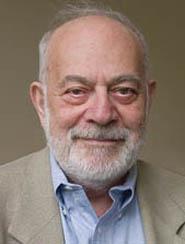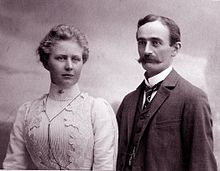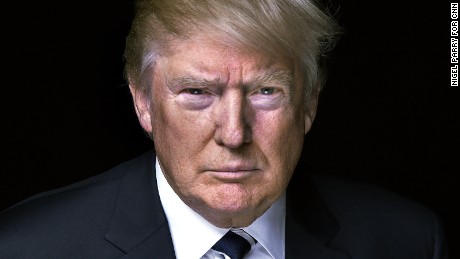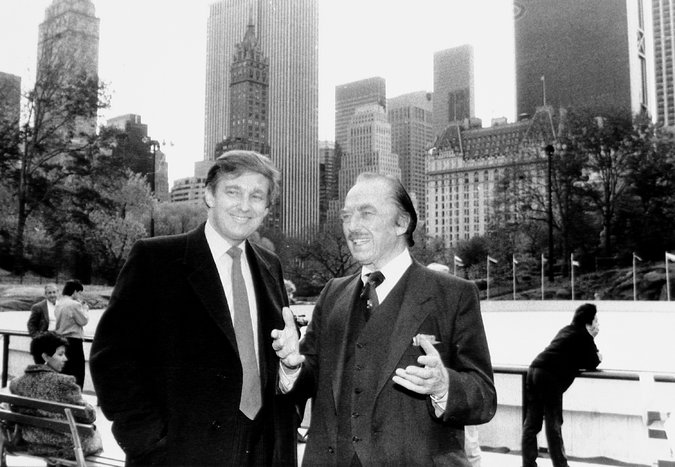Update 27 January 2017: Norman Abjorensen in Inside Story looks at the long history of post-truth politics. This is good also, from Rod Tiffen in Inside Story. And US academic Lauren Griffin (The Conversation US) applies Frankfurt to today’s reality.
________________
Who becomes president of the United States is important to Australia. Much of our history in the last century has marched in uneasy parallel with that of ‘our American cousins’. Accordingly – or perhaps just out of some weird fascination – Honest History has been following closely the passage of Donald John Trump to the White House.
Honest History has previously found illumination in a slim volume, On Bullshit, by venerable philosopher Harry Frankfurt of Princeton University, written originally in 1986 and republished since. We delved further into the professor’s work and found the nuggets below. (We inserted some extra paragraph breaks.) The material may be of some analytical assistance to readers. We used the Kindle version of the booklet but pdfs are readily available on the internet.
Frankfurt has nailed Trump as a bullshitter.
It is disturbing to find an important political figure who indulges freely both in lies and in bullshit [concluded Frankfurt]. What is perhaps even more deeply disturbing is to discover an important segment of our population responding to so incorrigibly dishonest a person with such pervasively enthusiastic acceptance.
But that was in May 2016 and we have moved on. There is more on Frankfurt and Trump here, which includes some links to other authors.
Related is this article in Politico, one of many trying to make sense of a reality dominated now by a star of ‘reality’ television. In the article, Trump biographers try to put a finger on what motivates the man; they give the impression that he himself constantly aims to raise a finger at critics.
Our earlier compilation of pieces trying to divine the impact of the Trumpocalypse on Australia is here. And we have just heard from American author, Colin Woodard, who specialises in analysis of the disparate regions and cultures that make up the ‘United’ States. Woodard’s regions-based analysis of why Trump won is here and a public radio interview with Woodard is here.
Our illustration is of Donald Trump and his father Fred in Central Park in 1987; they may be trying to buy New York, or possibly sell the Brooklyn Bridge. There is also a picture below of President-elect Trump’s grandfather, Friedrich Trumpf (or possibly Drumpf), who made money from brothels, casinos and other enterprises in the American West, along with his grandmother, who had been a Ms Christ, and whose name may be significant.
‘Ridicule is man’s most potent weapon. It is almost impossible to counterattack ridicule. Also it infuriates the opposition, who then react to your advantage.’ (Saul Alinsky’s fifth rule for radicals, 1971)
20 January 2017 updated
_______________
Frankfurt on bullshit
Getting away with it
 Harry Frankfurt (American Academy in Berlin)
Harry Frankfurt (American Academy in Berlin)
The realms of advertising and of public relations, and the nowadays closely related realm of politics, are replete with instances of bullshit so unmitigated that they can serve among the most indisputable and classic paradigms of the concept. And in these realms there are exquisitely sophisticated craftsmen who – with the help of advanced and demanding techniques of market research, of public opinion polling, of psychological testing, and so forth – dedicate themselves tirelessly to getting every word and image they produce exactly right. Yet there is something more to be said about this. However studiously and conscientiously the bullshitter proceeds, it remains true that he is also trying to get away with something … (page 22)
Faking it
[T]he essence of bullshit is not that it is false but that it is phony. In order to appreciate this distinction, one must recognize that a fake or a phony need not be in any respect (apart from authenticity itself) inferior to the real thing. What is not genuine need not also be defective in some other way. It may be, after all, an exact copy. What is wrong with a counterfeit is not what it is like, but how it was made. This points to a similar and fundamental aspect of the essential nature of bullshit: although it is produced without concern with the truth, it need not be false. The bullshitter is faking things. But this does not mean that he necessarily gets them wrong … (page 47)
Tolerating bullshit
In fact, people do tend to be more tolerant of bullshit than of lies, perhaps because we are less inclined to take the former as a personal affront. We may seek to distance ourselves from bullshit, but we are more likely to turn away from it with an impatient or irritated shrug than with the sense of violation or outrage that lies often inspire … (page 50)
Bullshitting is an art
Telling a lie is an act with a sharp focus. It is designed to insert a particular falsehood at a specific point in a set or system of beliefs, in order to avoid the consequences of having that point occupied by the truth. This requires a degree of craftsmanship, in which the teller of the lie submits to objective constraints imposed by what he takes to be the truth. The liar is inescapably concerned with truth-values. In order to invent a lie at all, he must think he knows what is true. And in order to invent an effective lie, he must design his falsehood under the guidance of that truth.
On the other hand, a person who undertakes to bullshit his way through has much more freedom. His focus is panoramic rather than particular. He does not limit himself to inserting a certain falsehood at a specific point, and thus he is not constrained by the truths surrounding that point or intersecting it. He is prepared, so far as required, to fake the context as well. This freedom from the constraints to which the liar must submit does not necessarily mean, of course, that his task is easier than the task of the liar. But the mode of creativity upon which it relies is less analytical and less deliberative than that which is mobilized in lying. It is more expansive and independent, with more spacious opportunities for improvisation, color, and imaginative play. This is less a matter of craft than of art. Hence the familiar notion of the “bullshit artist” … (pages 51-53)
Deception
The bullshitter may not deceive us, or even intend to do so, either about the facts or about what he takes the facts to be. What he does necessarily attempt to deceive us about is his enterprise. His only indispensably distinctive characteristic is that in a certain way he misrepresents what he is up to … (page 53)
 Trump’s grandparents (Wikipedia)
Trump’s grandparents (Wikipedia)
Truth is not of central interest
The fact about himself that the bullshitter hides, on the other hand, is that the truth-values of his statements are of no central interest to him; what we are not to understand is that his intention is neither to report the truth nor to conceal it … (page 55)
It is impossible for someone to lie unless he thinks he knows the truth. Producing bullshit requires no such conviction. A person who lies is thereby responding to the truth, and he is to that extent respectful of it. When an honest man speaks, he says only what he believes to be true; and for the liar, it is correspondingly indispensable that he considers his statements to be false.
For the bullshitter, however, all these bets are off: he is neither on the side of the true nor on the side of the false. His eye is not on the facts at all, as the eyes of the honest man and of the liar are, except insofar as they may be pertinent to his interest in getting away with what he says. He does not care whether the things he says describe reality correctly. He just picks them out, or makes them up, to suit his purpose … (pages 55-56)
Bullshitters pay no attention to the authority of the truth
Both in lying and in telling the truth people are guided by their beliefs concerning the way things are. These guide them as they endeavor either to describe the world correctly or to describe it deceitfully. For this reason, telling lies does not tend to unfit a person for telling the truth in the same way that bullshitting tends to. Through excessive indulgence in the latter activity, which involves making assertions without paying attention to anything except what it suits one to say, a person’s normal habit of attending to the ways things are may become attenuated or lost.
Someone who lies and someone who tells the truth are playing on opposite sides, so to speak, in the same game. Each responds to the facts as he understands them, although the response of the one is guided by the authority of the truth, while the response of the other defies that authority and refuses to meet its demands.
The bullshitter ignores these demands altogether. He does not reject the authority of the truth, as the liar does, and oppose himself to it. He pays no attention to it at all. By virtue of this, bullshit is a greater enemy of the truth than lies are … (pages 60-61)
Bullshit is stimulated by ignorance
Bullshit is unavoidable whenever circumstances require someone to talk without knowing what he is talking about. Thus the production of bullshit is stimulated whenever a person’s obligations or opportunities to speak about some topic exceed his knowledge of the facts that are relevant to that topic. This discrepancy is common in public life, where people are frequently impelled – whether by their own propensities or by the demands of others – to speak extensively about matters of which they are to some degree ignorant … (page 63)
Bullshitters try to be true to themselves
The contemporary proliferation of bullshit also has deeper sources, in various forms of skepticism which deny that we can have any reliable access to an objective reality, and which therefore reject the possibility of knowing how things truly are. These “antirealist” doctrines undermine confidence in the value of disinterested efforts to determine what is true and what is false, and even in the intelligibility of the notion of objective inquiry.
One response to this loss of confidence has been a retreat from the discipline required by dedication to the ideal of correctness to a quite different sort of discipline, which is imposed by pursuit of an alternative ideal of sincerity. Rather than seeking primarily to arrive at accurate representations of a common world, the individual turns toward trying to provide honest representations of himself. Convinced that reality has no inherent nature, which he might hope to identify as the truth about things, he devotes himself to being true to his own nature. It is as though he decides that since it makes no sense to try to be true to the facts, he must therefore try instead to be true to himself. (pages 64-66)
 (CNN)
(CNN)



Leave a Reply
You must be logged in to post a comment.